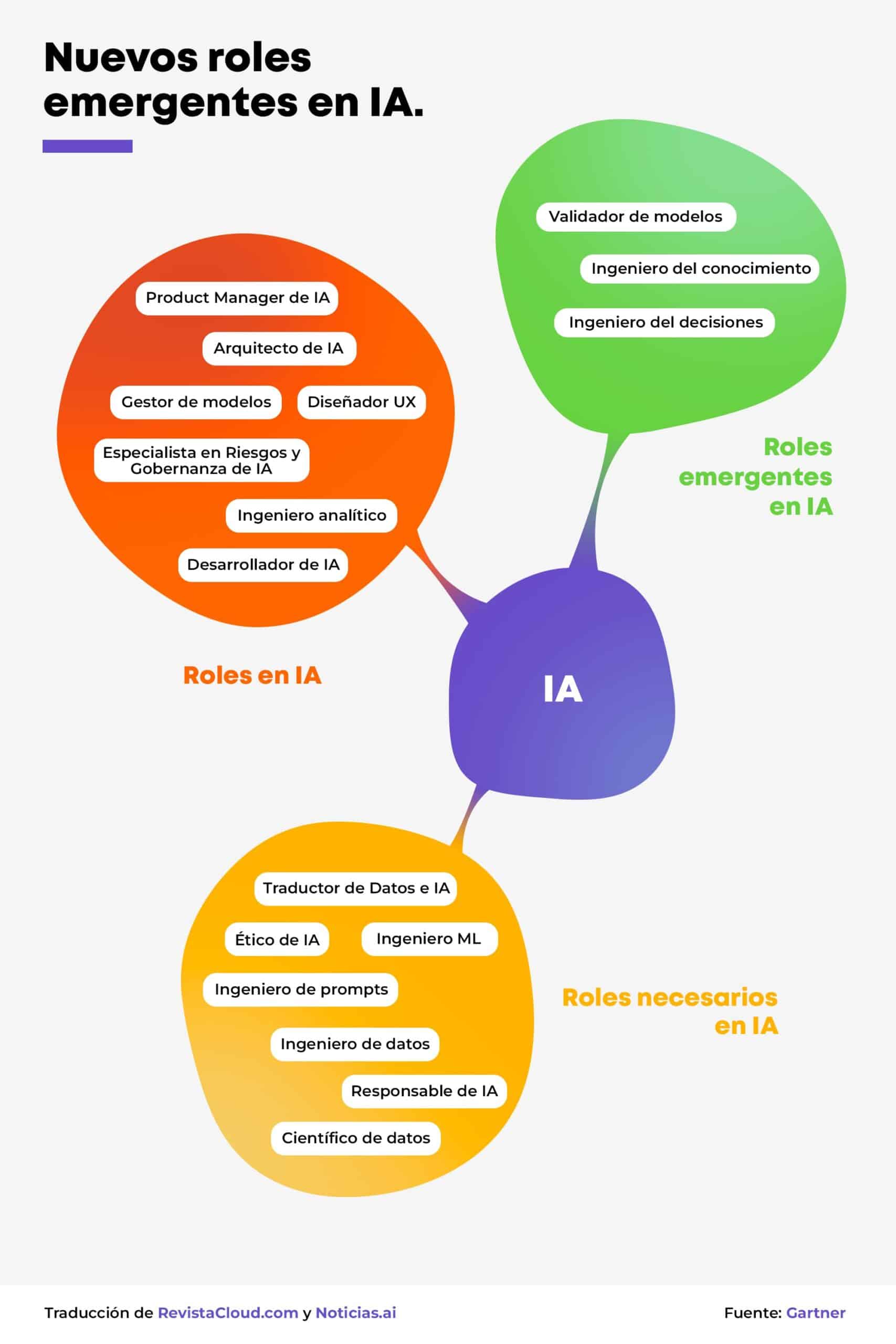The rise of artificial intelligence (AI) has sparked a torrent of debates about the future of work. Headlines announcing the jobs that AI could replace are common, but much less is said about the new positions that this technology is creating that will forever transform the job market.
History teaches us that every major technological revolution brings not only automation and efficiency but also the emergence of completely new professions. The Internet, personal computers, and mobile phones are clear examples of how innovations rewrite the labor landscape. According to studies, 70% of current jobs did not exist 100 years ago, and AI will be no exception, but rather an accelerant.
AI: From Threat to Professional Reinvention
Far from being an enemy, AI emerges as a partner to enhance human talent. In fact, according to Gartner, 67% of mature organizations are creating new positions specifically for generative AI, and 87% of companies already have teams specialized in artificial intelligence.
This revolution affects not only tech profiles. Professionals in the legal, healthcare, marketing, education, and industrial sectors will see how their tasks are complemented and enhanced through AI tools. The ability to work hand in hand with these technologies will be a differentiating factor.
The New Professional Profiles Driven by AI
In this new era, highly specialized and hybrid positions are beginning to emerge, combining technical knowledge with strategic and business skills. Here are some of the most notable:
| New Profiles Driven by Artificial Intelligence |
|---|
| AI Architect: Designs the technological infrastructure to deploy scalable AI solutions. |
| Head of AI: Leads the artificial intelligence strategy in organizations. |
| AI Developer: A programmer specialized in creating and integrating AI models. |
| AI Product Manager: Coordinates the development of AI-driven products from concept to market. |
| Knowledge Engineer: Responsible for organizing and structuring data so that AI models can learn and reason correctly. |
| Model Manager: Oversees the lifecycle of AI models, from creation to production deployment. |
| Model Validator: Assesses the accuracy, safety, and ethical alignment of models. |
| AI Risk & Governance Specialist: Monitors regulatory and ethical compliance in the use of AI. |
| Prompt Engineer: Designs the best instructions and queries to interact with generative AI models. |
| AI Ethicist: Ensures that AI developments respect ethical principles and social values. |
| Data & AI Translator: Facilitates understanding between technical teams and business areas. |
| Chief AI Officer (CAIO): A new executive role responsible for defining and overseeing the entire artificial intelligence strategy of a company. |

The Importance of Adapting and Learning
Andrew Ng, one of the leading international experts on AI, sums it up clearly: “One of the most important skills for the future will be the ability to tell a computer exactly what you want it to do for you.”
In an environment where more and more tasks can be automated, the real value will lie in knowing how to ask the right questions, understanding the language of AI, and leveraging its power to solve complex problems and generate new business opportunities.
This new landscape also requires universities, training centers, and companies to strengthen education in technological fundamentals, AI ethics, and critical thinking skills. It is not just about programming, but about understanding how AI works, how it can impact various sectors, and what its risks are.
AI is Not the End of Jobs, It’s the Beginning of Another Stage
Instead of viewing AI as a threat, it’s time to understand it as a great opportunity for reinvention. The key lies in the ability to adapt. As Darwin famously said, “It is not the strongest or the most intelligent species that survives, but the one that is most adaptable to change.”
In this sense, artificial intelligence will bring about disruptive changes but also a tsunami of new possibilities for those who are prepared and want to lead this transformation.
What Steps Should Professionals Take in Response to This Change?
- Train in AI and Automation: From basic courses to advanced specializations.
- Develop Critical and Ethical Thinking: AI needs leaders who can anticipate consequences and make responsible decisions.
- Learn to Work in Hybrid Environments: Understand AI tools and know how to integrate them into daily workflows.
- Specialize in Human-Machine Communication: Master prompt engineering and the ability to translate business needs into precise instructions for AI models.
The future of work is already here. The question is: Are you ready to join it and seize its full potential?

